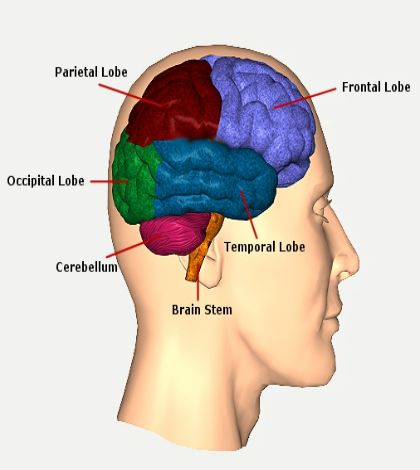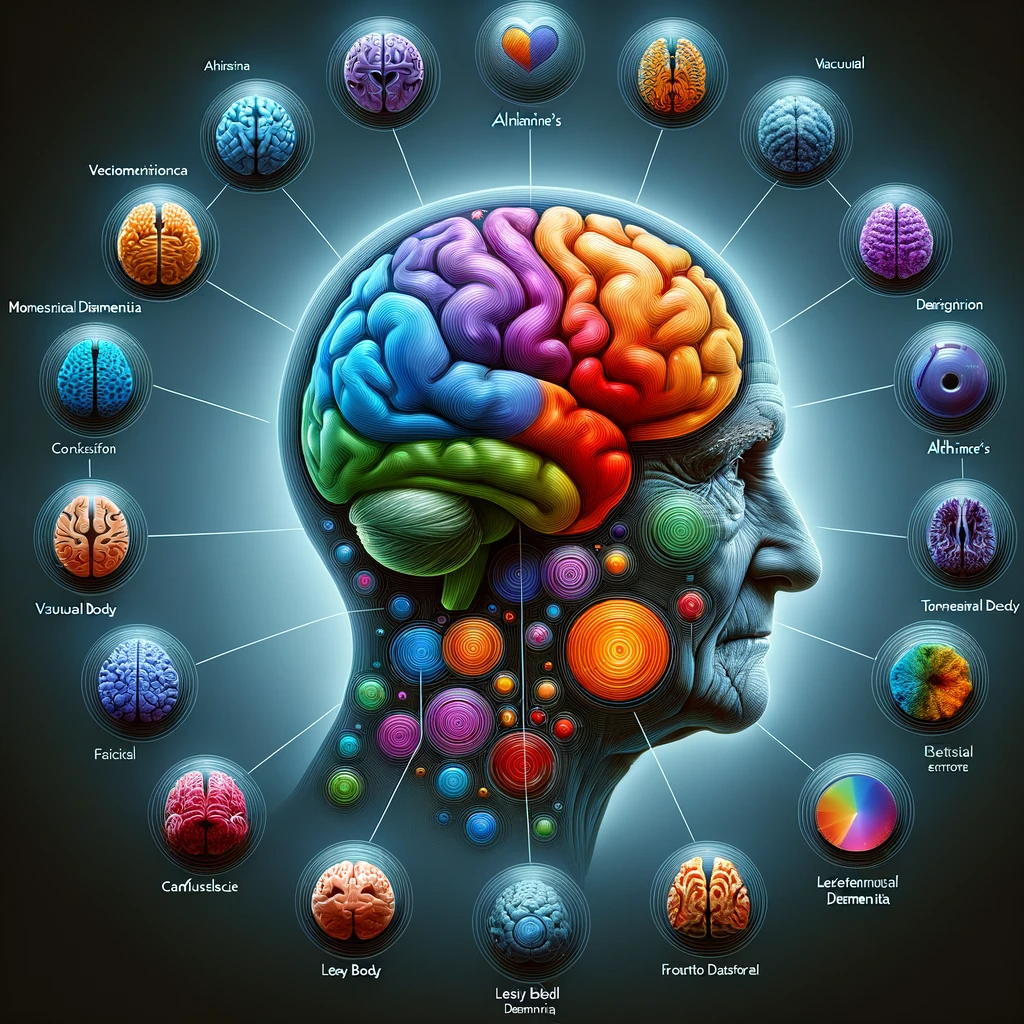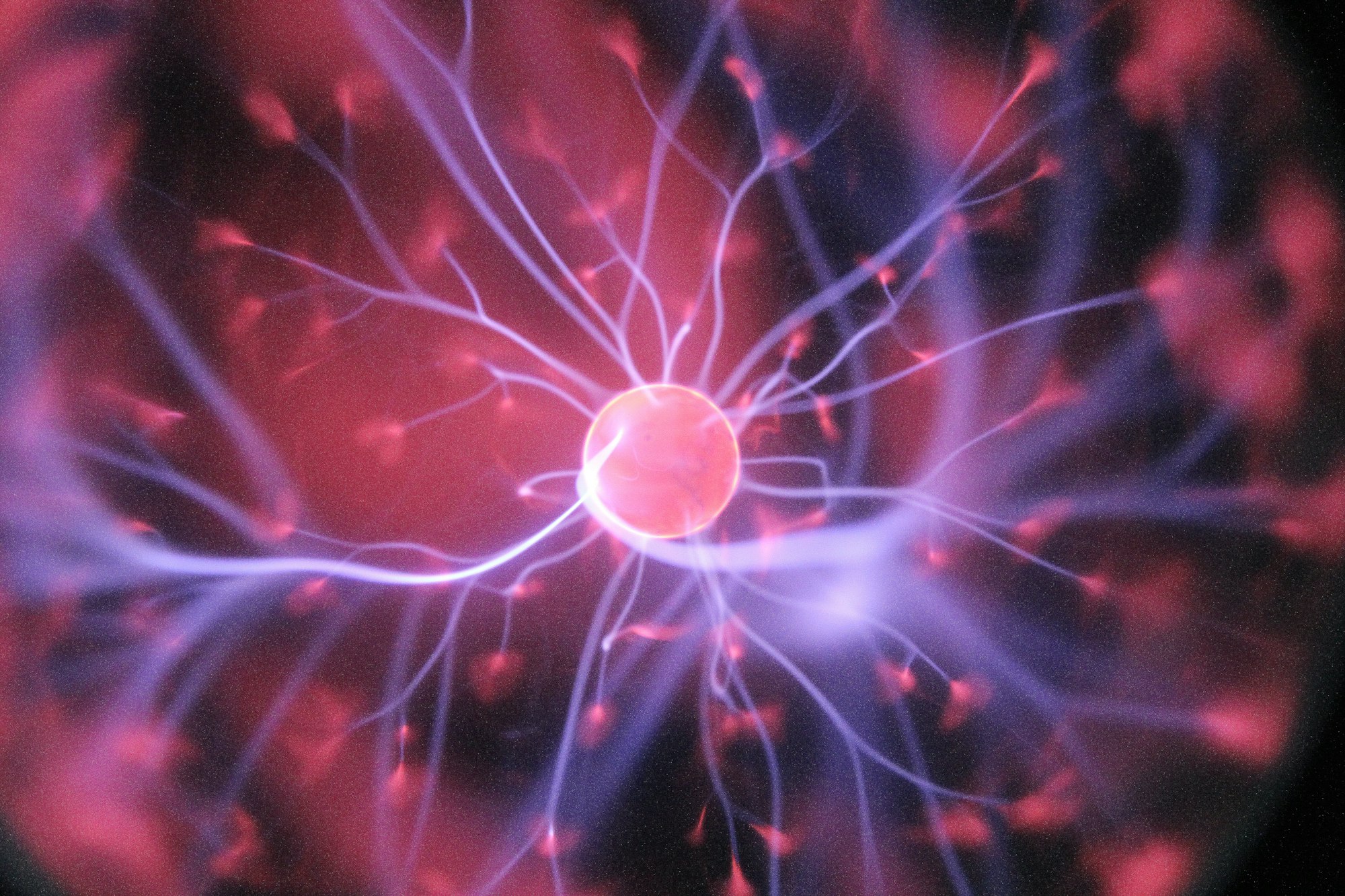Different Dementia Types – A Brief Overview
Learn about the different types of dementia, including Alzheimer's disease, vascular dementia, and lewy body dementia. Understand the causes and symptoms of each form, and how to manage the condition.

Not everyone realizes that the many different dementia types generally break down into two main groups, Alzheimer and non-Alzheimer, types of dementia. Within these two groups are the various kinds of cognitive impairment resulting from different conditions or injuries.
The various forms of dementia derive their names from the underlying conditions that result in the impairment. Treatment options also depend to a great extent on the dementia and the severity of the condition upon diagnosis.
Dementia Overview
For years, people thought that these conditions were a normal part of the aging process. Studies show that this is not the case and that the various dementia types result from various conditions or from some actions such as excessive drinking. Dementia refers to a variety of conditions that lead to cognitive impairment which in turn affects memory, language, reasoning and other related functions. This condition regardless of the type generally makes it difficult or impossible to perform regular daily activities such as driving or even talking.
One of the most common questions family members ask is, "Is dementia hereditary?" Here is a video on the types of dementia that may be hereditary.
Dementia Types
The list of dementia types is quite long and includes some obscure names that few people have ever heard. In most cases, the names indicate which condition or conditions caused the particular form of dementia.
Vascular Dementia
Vascular dementia, second only to Alzheimer's disease in prevalence, accounts for over 40 percent of dementia cases. Known alternatively as post-stroke dementia or multi-infarct dementia, it primarily arises from reduced blood flow to the brain. This impairment typically results from stroke or a series of strokes, causing damage to the brain cells and leading to cognitive decline.
Causes and Risk Factors
The central cause of vascular dementia is blood vessel disease in the brain. Strokes, or brain injuries, that block the arteries can lead to this form of dementia. High blood pressure, heart disease, and smoking are significant risk factors, mirroring those for stroke. These factors can lead to the development of dementia symptoms, including vascular dementia.
Symptoms and Diagnosis
The symptoms of vascular dementia can vary, depending on the affected brain areas. Common signs include memory loss, confusion, difficulty with thinking skills, and trouble with concentration. In some cases, physical symptoms like poor balance or bladder control issues might appear. For dementia diagnosis, doctors often use a combination of medical history, laboratory tests, and brain scans.

Relation to Other Dementia Types
Vascular dementia often coexists with Alzheimer's disease, leading to a condition known as mixed dementia. It can also be mistaken for other types of dementia, such as Lewy body dementia, frontotemporal dementia, and Parkinson's disease dementia, due to overlapping symptoms like memory loss and cognitive impairment.
Senile Dementia
Affecting people over 65 years old, this condition is, in many cases, a result of Alzheimer’s disease. It is one of the dementia types that falls into the broad Alzheimer’s category and is a late onset condition. Other common causes are diabetes, stroke, Parkinson’s, alcoholism, narrowing and hardening of the arteries or atherosclerosis and even a reaction to certain medications. Any of these will result in cognitive decline with the person slowly losing the mental capacity to function normally.
Lewy Body Dementia
This progressive form of dementia can occur out of the blue without any risk factors such as heredity being an identifiable cause. Clumps or Lewy bodies forming on the cortex of the brain cause the condition and apart from affecting alertness and one’s attention span, the disease also results in visual hallucinations, in some people. Hallucinations range from talking to dead people to seeing things and colors that are not really there. Misdiagnosis is common with this condition because it displays symptoms similar to Alzheimer’s and Parkinson’s and it affects well over one million Americans.
Frontal Lobe Dementia
Under the wider term, frontotemporal dementia, this disorder is part of a rarer group of conditions developing dementia that affect the temporal and frontal lobes of the brain. This condition develops due to parts of the brain either shrinking or dying. The symptoms depend on which portion of the brain is impacted. Some people lose the ability to understand language while others start displaying inappropriate behaviors.
Alzheimer’s Disease
The most common form of dementia, this condition gets worse over time until in most cases the patient is unable to function at a normal level, with many losing their memory altogether. For between 50 to 80 percent of people thought to be suffering from one or more dementia types, the diagnosis is with Alzheimer’s. Statistically over five percent of younger people, normally between 40 and 50 years old, with the condition have early onset or younger onset Alzheimer’s disease.

Korsakoff’s Syndrome
This results from a deficiency of vitamin B1 (thiamine) leading to memory loss. A common cause of this condition is alcoholism although this is not always the case. Also known as 'alcohol amnestic syndrome', short memory loss resulting from this condition is reversible. Giving up alcohol and improving the diet can greatly help the patient’s recovery. Dr. Sergei Korsakoff, for whom the disorder is named, was the first to describe it.
Huntington Disease
Resulting from a defective gene, this progressive brain disease affects the part of the brain, which is responsible for movement and thinking. Over time, the defective protein, Huntington severely affects the various brain cells leading to progressively noticeable loss of reasoning ability and erratic movement of the affected person. While it frequently strikes people in the age group 30 to 50, symptoms can occur in toddlers as young as two years old and seniors, 80 years and older. The main risk factor for the condition is genetic. Like other dementia types, this is named after the discoverer of the condition, Dr. George Huntington.
Parkinson’s Disease
This condition results in shaking of the limbs, which gets progressively worse over time. Coordination, walking and even speech become affected, making it difficult for the person to function. Affecting both men and women, it is more common in people over 50 but it is sometimes seen in younger people. In most cases when young people have the condition, a strong genetic connection is present. The brain becomes impaired, as dopamine-making cells, which are responsible for movement, are no longer in good condition.
Interestingly, people get a diagnosis of mixed dementia when a number early symptoms of different conditions present at the same time such as vascular dementia and Alzheimer’s. Knowing the various dementia types helps in recognizing symptoms early if possible which can lead to early diagnosis and therefore treatment. While not all patients will respond positively to treatment, reacting quickly can sometimes slow the progress of the condition
Normal Pressure Hydrocephalus
Caused by an accumulation of cerebrospinal fluid in the brain ventricles, normal pressure hydrocephalus leads to memory loss, difficulty walking, and impaired bladder control. It can sometimes be treated with surgical intervention.
Creutzfeldt-Jakob Disease
A rare and rapidly fatal disorder, Creutzfeldt-Jakob disease (CJD) is caused by prions, misfolded proteins that lead to brain damage. Symptoms include rapid mental deterioration, memory loss, and involuntary movements.
Understanding the various types of dementia is crucial for effective diagnosis and management. Each type has its unique characteristics and challenges, necessitating tailored approaches to care and treatment. As research continues, the hope for better treatments and ultimately cures remains a focal point in the medical community.
SOURCES
http://my.clevelandclinic.org/disorders/dementia/hic_types_of_dementia.aspx
http://psychcentral.com/lib/2006/what-is-dementia/
http://www.alz.org/dementia/types-of-dementia.asp
http://www.mayoclinic.com/health/frontotem
You might also like this article:


What's Dementia: Symptoms, Types, Causes, Treatment & Risk Factors
The 10 Most Common Types of Dementia and Their Causes
Is There a Diabetes Dementia Link?
You might also like this article:








